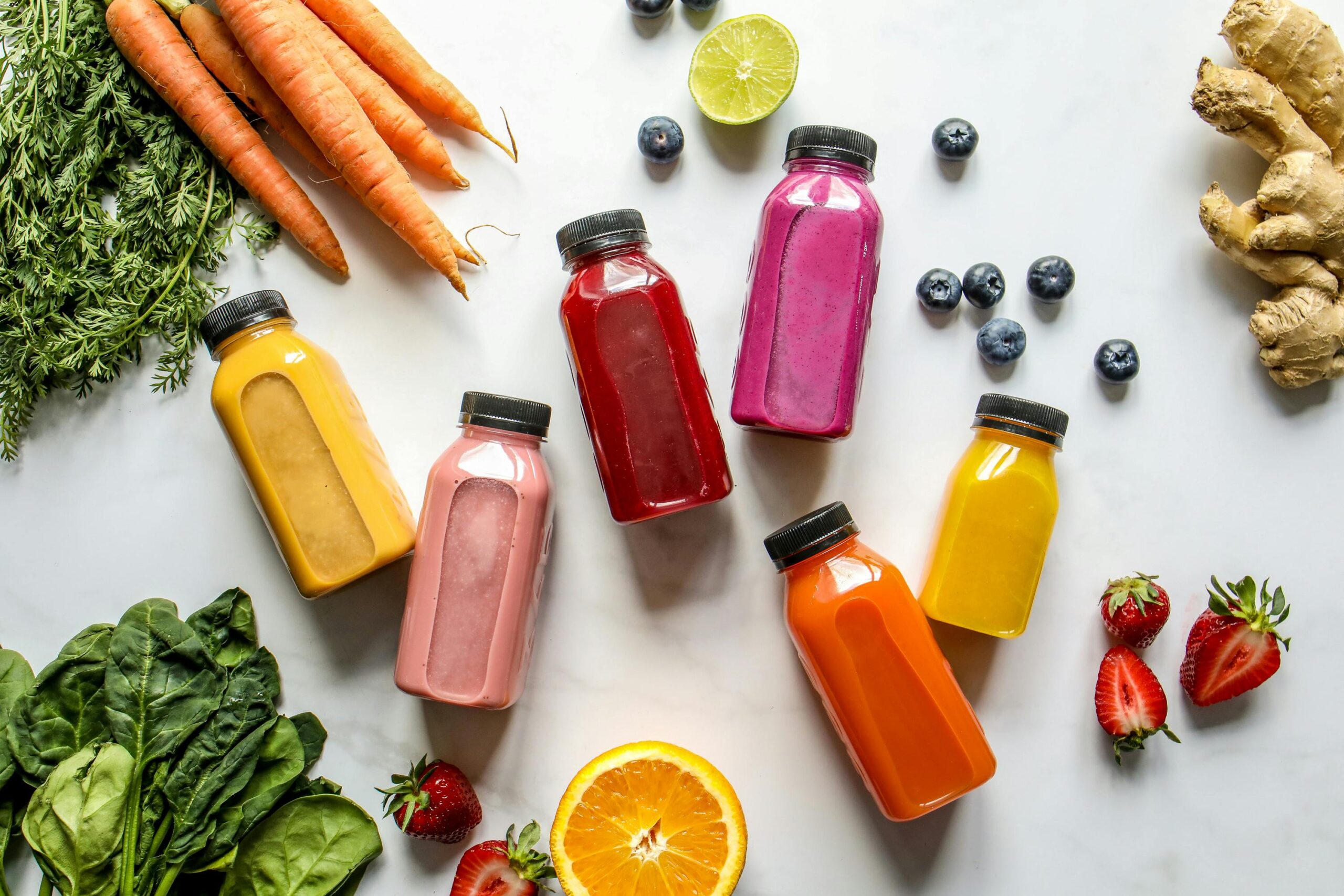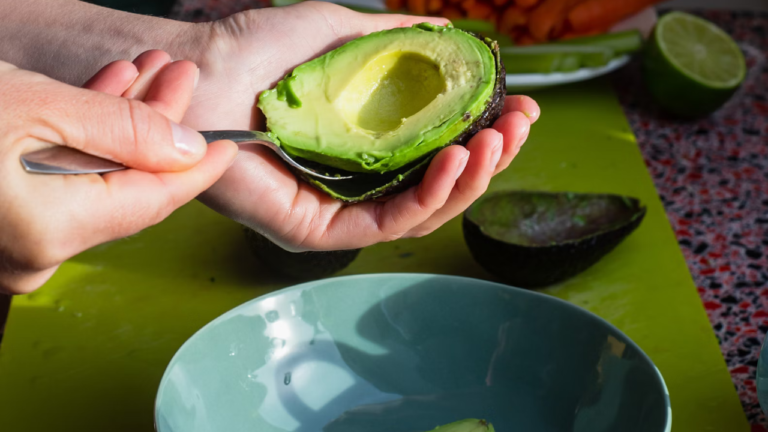Healture - Health and Wellness Culture contains affiliate links. For more information see our disclosures here.
The 21-Day Smoothie Diet Program has been making waves in the health and wellness community, promising weight loss, increased energy, and overall improved health by replacing meals with nutrient-dense smoothies. As someone who is always on the lookout for effective and sustainable ways to maintain a healthy lifestyle, I took a deep dive into this diet to thoroughly understand its principles and potential benefits. I wanted to explore its effectiveness, sustainability, and overall impact on health, and I’m excited to share my comprehensive findings and insights with you.
What Is The Smoothie Diet: 21-Day Weight Loss Program?
The Smoothie Diet: 21-Day Weight Loss Program, created by Certified Health Coach Drew Sgoutas, is a comprehensive plan that involves replacing two of your daily meals with smoothies. This program is detailed in an e-book that provides 36 smoothie recipes, shopping lists, meal plans, and tips for sustaining weight loss after completing the program. The diet aims to create a calorie deficit while providing essential nutrients through fruits, vegetables, nuts, and seeds.
According to the creator, the diet can help improve your immune function, detoxify your body, enhance skin and gut health, and boost energy levels, all while promoting significant weight loss. Testimonials on the program’s website claim weight losses of up to 9 pounds in just 3 days, though results can vary from person to person.

How to Follow the Program
The 21-Day Smoothie Diet is structured to be easy to follow:
- Preparation: Download the e-book which includes all necessary information, recipes, and shopping lists.
- 3-Day Detox: Start with a detox phase where you replace all three daily meals with smoothies. This helps kickstart your metabolism and cleanse your system.
- Meal Replacement: For the next three weeks, replace breakfast and lunch with smoothies. Dinner should be a balanced meal, rich in whole foods.
- Snacking: Consume two healthy snacks per day, such as nuts, fruits, or low-sugar options with around 150-200 calories each.
- Cheat Day: Once a week, you can have a cheat day without smoothies, though you should still focus on healthy, minimally processed foods.
The program emphasizes whole, minimally processed foods for your solid meals and snacks, aiming to reduce sugar cravings and promote a healthier lifestyle.
Foods to Eat & Avoid
The diet encourages the consumption of nutrient-dense foods while limiting processed ingredients.
Foods to Eat:
- Fruits: Bananas, pears, apples, oranges, pineapples, raspberries, strawberries
- Vegetables: Spinach, kale, cauliflower, bell peppers, carrots, broccoli
- Protein Foods: Chicken, turkey, salmon, eggs, legumes, Greek yogurt
- Whole Grains: Brown rice, quinoa, oats, buckwheat, popcorn
- Nuts and Seeds: Flaxseed, almonds, walnuts, chia seeds, nut butter
- Beverages: Almond milk, coconut milk, coconut water
- Herbs and Spices: Vanilla extract, fresh ginger, parsley, mint, cinnamon
- Other Ingredients: Unsweetened cocoa powder, unsweetened coconut flakes, vanilla extract, granola, honey
Foods to Avoid:
- Processed Meat: Bacon, ham, pepperoni, cold cuts, salami
- Refined Grains: White rice, white pasta, white bread, tortillas
- Fried Foods: French fries, mozzarella sticks, donuts, fried chicken, fish sticks
- Processed Foods: Convenience meals, cookies, chips, pretzels, baked goods
- Sugar-Sweetened Beverages: Soda, sweet tea, sports drinks, energy drinks
By focusing on whole foods and avoiding processed items, the diet aims to provide essential nutrients and promote overall health.
Click here to get the best deal on The Smoothie Diet: 21-Day Weight Loss Program.
Is Weight Loss Possible?
Weight loss is a primary goal of the 21-Day Smoothie Diet. By consuming around 1,500 calories per day, most individuals can expect to lose weight, though this may vary based on factors such as age, body size, health status, and activity level.
The high fiber content of the diet, coming from fruits, vegetables, nuts, and seeds, helps to keep you feeling full longer, reducing the temptation to snack on unhealthy foods. Fiber is essential for good digestive health and can aid in weight loss by slowing down digestion and promoting a feeling of fullness.
However, it’s important to note that while the diet can lead to short-term weight loss, it might not be sustainable long-term due to its restrictive nature. Consuming mostly liquids can be less satiating compared to solid foods, which might make it challenging to stick to the diet over time. Additionally, once the diet is over, there is a risk of regaining weight if healthy eating habits are not maintained.
Health Benefits Beyond Weight Loss
The 21-Day Smoothie Diet isn’t just about shedding pounds; it offers several additional health benefits. Let’s explore these in detail:
Improved Digestion
One of the standout benefits of the 21-Day Smoothie Diet is its impact on digestion. The high fiber content from fruits, vegetables, nuts, and seeds plays a crucial role in promoting digestive health. Fiber aids in regular bowel movements, prevents constipation, and helps maintain a healthy gut microbiome. According to the Mayo Clinic, a high-fiber diet can also reduce the risk of developing conditions such as hemorrhoids and diverticulitis. Additionally, fiber can aid in weight management by making you feel fuller for longer, thereby reducing overall calorie intake.
Increased Energy Levels
Many users of the 21-Day Smoothie Diet report feeling more energetic and less fatigued. This boost in energy is likely due to the nutrient-dense ingredients found in the smoothies, which provide essential vitamins, minerals, and antioxidants that support bodily functions and energy production. A diet rich in fruits and vegetables is known to enhance energy levels and improve overall vitality. Harvard Health states that a balanced diet, adequate hydration, and regular physical activity are key to maintaining high energy levels throughout the day.
Better Skin Health
The vitamins, antioxidants, and hydration provided by the smoothies can have a significant positive effect on your skin. Antioxidants help fight free radicals, which are responsible for aging and skin damage. Vitamins such as Vitamin C, found in abundance in many smoothie ingredients, are essential for collagen production and skin repair. According to WebMD, foods high in antioxidants and vitamins, like berries and leafy greens, contribute to healthier, glowing skin. Drinking plenty of fluids, including those in smoothies, also helps keep the skin hydrated and can reduce the appearance of wrinkles and dryness.
Detoxification
The detox phase of the 21-Day Smoothie Diet aims to cleanse the body of toxins. While the concept of detoxing is often debated, there is some evidence to support that consuming a diet rich in fruits and vegetables can aid in the body’s natural detoxification processes. The liver and kidneys naturally detoxify the body, but nutrients like antioxidants, vitamins, and minerals can support these organs’ functions. According to Healthline, eating a healthy, nutrient-rich diet helps the body eliminate toxins more efficiently and can improve overall health and well-being.
Downsides and Side Effects
While the 21-Day Smoothie Diet has several benefits, it is important to consider the potential downsides and side effects. Let’s delve into these issues in detail:
Potential Nutrient Deficiencies
Relying heavily on smoothies for your nutrition can lead to nutrient deficiencies if the smoothies are not well-balanced. While smoothies can be rich in vitamins and minerals, they may lack adequate amounts of protein, healthy fats, and certain essential nutrients. Protein is vital for muscle repair and growth, immune function, and overall health. According to Healthline, an average adult needs about 46-56 grams of protein per day, which might be challenging to meet through smoothies alone. Additionally, fats are necessary for hormone production and the absorption of fat-soluble vitamins (A, D, E, and K). Without careful planning, this diet might fall short in these areas.
High Sugar Content
Many of the smoothies in the 21-Day Smoothie Diet contain high amounts of natural sugars from fruits. While these sugars are healthier than refined sugars, they can still impact blood sugar levels, especially for individuals with diabetes or insulin resistance. Consuming high amounts of sugar, even from natural sources, can lead to energy spikes and crashes, making it difficult to maintain steady energy levels. According to WebMD, it’s important to monitor your sugar intake and balance it with protein and healthy fats to prevent these fluctuations. Adding leafy greens, nuts, and seeds to your smoothies can help balance the sugar content and provide a more stable energy source.
Hunger and Cravings
Liquids are generally less satiating than solid foods, which can make you feel hungry more often when following a smoothie-based diet. The lack of chewing can also affect satiety, as the act of chewing signals to your brain that you’re eating, helping you feel fuller. According to Harvard Health, solid foods take longer to digest, which keeps you feeling full longer and can reduce the temptation to snack between meals. This aspect of the diet might make it challenging to stick to the plan, particularly for those who enjoy the sensory experience of eating whole foods.
Sustainability Issues
While the 21-Day Smoothie Diet can be effective for short-term weight loss, its restrictive nature can make it difficult to follow long-term. Many people find it hard to maintain a diet that relies heavily on smoothies for an extended period. The monotony of drinking smoothies for two meals a day can lead to diet fatigue, making it more likely that you’ll revert to previous eating habits once the program is over. According to Verywell Fit, sustainable weight loss typically involves making gradual, permanent changes to your eating habits rather than following a temporary, restrictive diet.
Cost Considerations
Purchasing fresh produce, particularly organic fruits and vegetables, can be expensive, which might make the 21-Day Smoothie Diet costly to maintain. Additionally, specialty ingredients like almond milk, chia seeds, and protein powders can add to the expense. While investing in your health is worthwhile, it’s important to consider whether this diet fits within your budget. According to USDA, the cost of eating a healthy diet can vary significantly based on factors like geographic location and access to affordable, fresh produce.
The Verdict
The 21-Day Smoothie Diet has its merits and drawbacks. If you’re looking for a quick, short-term solution to jumpstart your weight loss journey, this could be worth a try. However, for long-term sustainability and overall health, it’s essential to incorporate a balanced diet with a variety of whole foods.
Final Thoughts
In the world of diets, the Smoothie Diet: 21-Day Smoothie Weight Loss Program is like the trendy new kid on the block. It’s fun, fresh, and can yield quick results, but it’s not a one-size-fits-all solution. Before embarking on any diet, especially one as restrictive as this, it’s wise to consult with a healthcare professional. Your health is your most valuable asset, so treat it with the care it deserves.
For more information on the benefits and considerations of a smoothie-based diet, check out “My Journey to Making the Perfect Smoothie with London Brazil’s Simple Formula” and these 5 smoothies to burn fat and fight cancer
So, are you ready to blend your way to a healthier you? Grab your blender, stock up on those leafy greens, and let the smoothie journey begin!




